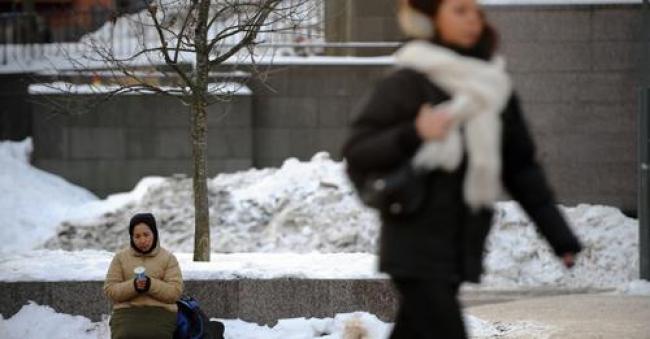Articles Menu

Apr. 29, 2023
Determined to pack more homeless people into Toronto’s overcrowded shelters, officials have come up with a solution: reduce the number of inches between beds.
There’s a certain logic to this and it may be the best we can do — given our refusal to consider solutions that would actually be innovative.
And so it is that here in Toronto we’re busy studying how to jam more beds into already-cramped shelters, while over in Finland — where innovation is more than just another word for privatization — they’ve managed to virtually end homelessness.
OK, so the Finns are more generous and just shell out a lot more to help the homeless, right? Actually not. The Finns are simply smarter.
Instead of abandoning the homeless, they housed them. And that led to an insight: people tend to function better when they’re not living on the street or under a bridge. Who would have guessed?
It turns out that, given a place to live, Finland’s homeless were better able to deal with addictions and other problems, not to mention handling job applications. So, more than a decade after the launch of the “Housing First” policy, 80 per cent of Finland’s homeless are doing well, still living in the housing they’d been provided with — but now paying the rent on their own.
This not only helps the homeless, it turns out to be cheaper.
In Canada, however, we’re determined to stick to market-based solutions, no matter how badly they fail or how costly they are.
Indeed, homelessness is just the extreme end of Canada’s dysfunctional housing market, which we’ve left largely in the domain of the private marketplace, creating a huge divide between those who can afford to buy a house and those who can’t.
This has resulted in a large underclass of tenants — roughly one-third of Canadian households — many of whom are little more than a pay cheque away from eviction.
The situation cries out for more government intervention.
In fact, the government does intervene in the housing market — most notably in ways that actually enhance the privileged position of homeowners by, for instance, sparing them tax on the capital gains they receive on the sale of their homes.
This largely hidden government intervention in the housing market not only amounts to an enormous subsidy for homeowners — costing the federal government almost $10 billion a year in lost revenue — it also further disadvantages tenants by driving up housing prices, putting a home farther out of reach.
Of course, the government also intervenes to increase the housing supply, ostensibly helping tenants. However, these measures often take the form of financial incentives for developers, mostly benefiting developers. The additional rental units created rarely result in lower rents, notes political economist Ricardo Tranjan in his new book “The Tenant Class.”
The best way to benefit low-income renters would be for government to create housing that isn’t based on the profit motive — by building housing itself or subsidizing non-profit groups to do so.
Canada used to be fairly good at this social housing, along with the Europeans. In the late 1960s and early 70s, about 10 per cent of new rental housing built in Canada was social housing.
But while the Europeans have remained strong in social housing, Canada has almost completely exited the field, with our social housing dropping to just 4 per cent of total households — roughly the same level as the devoutly pro-market U.S.
If we want to deal with our dysfunctional housing market more effectively than simply pushing the shelter beds more closely together, the answer will involve increasing the supply of housing that isn’t based on the profit motive.
Sadly, this is not on the political agenda, although it’s noteworthy that Toronto City Councillor Josh Matlow is advocating a proposal along these lines as part of his mayoral campaign.
Matlow’s proposal will no doubt be dismissed as impossibly costly by commentators who, as homeowners, quietly benefit from the impossibly costly (although largely hidden) subsidy provided to homeowners.
[Top photo: An homeless woman begs for money in the streets of Helsinki by -18°C, on January 20, 2010. (Photo by Olivier Morin/AFP via Getty Images)]